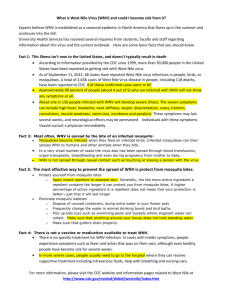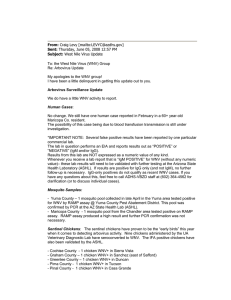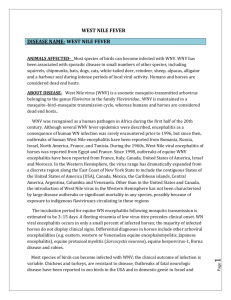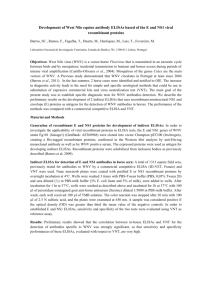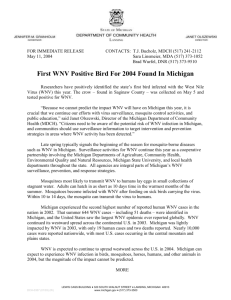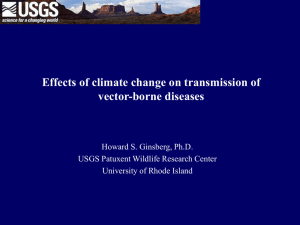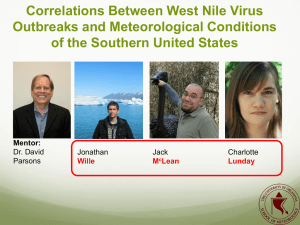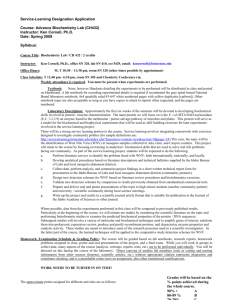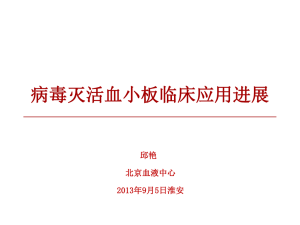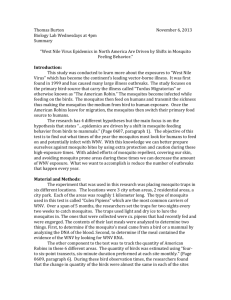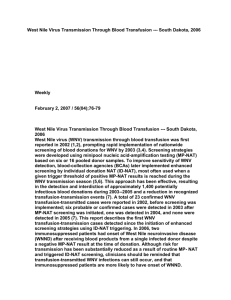Enzootic Cycles
advertisement
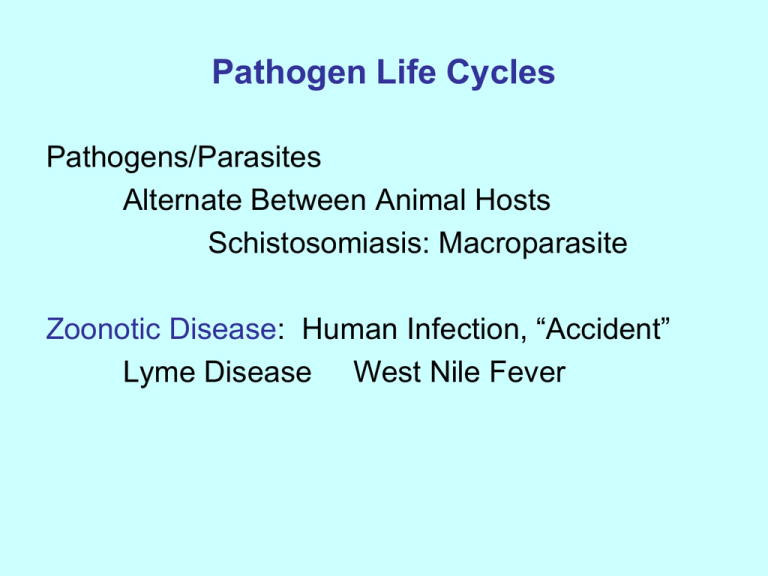
Pathogen Life Cycles Pathogens/Parasites Alternate Between Animal Hosts Schistosomiasis: Macroparasite Zoonotic Disease: Human Infection, “Accident” Lyme Disease West Nile Fever Lyme Disease Most Common Vector-Borne Infection in Northern Hemisphere Northeast: 4+ Species: Enzootic Cycle Borrelia (pathogen) Black-legged Tick (vector) Small, Large Mammal Hosts Ixodid Tick Year 1 Year 2 Egg Larva Blood Meal White-footed Mouse, Other Small Mammal Infection? Molt/Quiescent Nymph Blood Meal Small Mammal Zoonotic Infection Adult Blood Meal (♀), Deer Reproduce Enzootic Cycle, Lyme (Penn State Univ.) Ixodid Ticks (CDC) NYS: Lyme Disease; Glavanakov et al 2001 2000 30000 25000 1600 1400 20000 1200 1000 15000 800 10000 600 400 5000 200 0 0 88 89 90 91 92 YEAR 93 94 95 96 CUMULATIVE CASES INCIDENCE RATES 1800 Lyme Disease: NYS, Cases & Rates Schistosomiasis 200 x 106 Infections Worldwide Tropical, Freshwater Snails 5 Macroparasites Complex Lifecycle: 2 Hosts, 2 Reproductive Modes Schistosomiasis (Originally) Disease of Herbivores Infects Cattle, Jumped to Humans? Human Parasitic Disease: Chronic Infection/Cognition Impact Second to Malaria/Economic Schistosome Life Cycle Schistosome Life Cycle Snail: Mother Sporocyst, Asexual Reproduction, Daughter Sporocysts, Daily Release of Cercariae Human: Schistosomules Mature as Male or Female, Sexual Reproduction West Nile Virus WNV: Arbovirus, Arboviral Encephalitis N America: First Noted 1999 Across Continent, Central America Reservoir: Birds Vectors: Mosquito Spp. Secondary Infection – Mammals Humans: Zoonosis WNV: Geographic Distribution (CDC) WNV Birds - 2009 (USGS) WNV: Human cases, 2012 WNV Life Cycle (Stanford) WNV Life Cycle RNA Virus: High Mutation Rate Mosquito: Innate Immunity Viral Master Sequence Mutant Cloud: Quasispecies, High Diversity Bird: Vertebrate Immunity Master Sequence, Low Diversity WNV Life Cycle Viral R0 : Must Reproduce Sequentially in Two Different Environments Trade-offs? WNV Vectors Mosquito Spp and Zoonosis Risk Enzoootic Cycle: Culex pipiens Ornithophilic; Fewer Mammal Meals “Bridge Vectors” Prefer Mammals; Risk to Humans? Aedes Spp. WNV Vectors 1. Abundance 2. Fraction Blood Meals from Mammals 3. WNV Prevalence Pr[Fed Infected Bird & Acquired WNV] Fraction of Mosquito Sp. Carrying WNV 4. Vector Competence Given Infection, Pr Will Transmit to New Host WNV Vectors (Kilpatrick et al. 2005) Bridge (Aedes) Ornithophilic Abundance 21% 37% Mammal Meals 86% 19% 5% 95% Competence 17% 38% Risk 4.5% 80.2% WNV Prevalence WNV Vectors/Zoonosis Risk Control Ornithophilic Spp. Small Set of Breeding Sites Tires, Gutters, Open Pools Around Human Habitations Wetland Intervention Unnecessary
